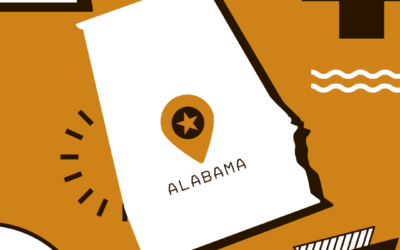Do you need to collect and remit sales tax in Virginia?
If you’re in the business of selling, leasing, distributing, or renting tangible personal property to customers in Virginia, or if you have nexus within the state, you are required to collect and remit sales tax. But what does that mean, exactly?
Understanding Tangible Personal Property
Tangible personal property refers to any physical item that can be touched, used, and owned. For instance, it may cover items from everyday consumer goods like a t-shirt or a book, to pricier purchases like cars and boats.
Virginia sales tax not only applies to these common examples but also to less-obvious categories. This includes communications and aircraft sales, merchandise sold via vending machines, rentals of motor vehicles, and even short-term lodging rentals—think hotels and similar accommodations.
Exemptions from Virginia Sales Tax
Despite this broad taxable scope, there are certain exemptions Virginia state legislature recognizes:
- Purchases made for resale
- Purchases made by and for government agencies
- Agricultural materials and equipment purchases meant for raising crops or other agricultural products
- Most services
- Prescription and over-the-counter drugs
- Medical supplies
If you’re wondering whether your purchase falls under one of these exemptions, you can click here to see a full list of Virginia’s non-taxable items. Remember that these purchases can only be deemed exempt from sales tax if a valid exemption certificate is provided.
Do you have sales tax nexus in Virginia?
‘Nexus’ is a commonly used term in the world of sales tax, as it refers to the connection a company or seller has with a state that makes it legally obligated to collect and pay sales tax to that state. Many different types of businesses can have nexus in Virginia, including those that are in-state and remote. Let’s explore the two main types of nexus: physical and economic.
Physical sales tax nexus in Virginia
Physical nexus is established through physical connection. If you’re an individual or a business making sales from one or more physical locations within Virginia—such as an office, warehouse, or similar place of business—you’ll need to register as an in-state dealer and collect sales tax.
Even companies located out-of-state may have sufficient physical presence to establish nexus. This is typically in the form of having agents, employees, or other representatives working within Virginia, even if the base of operations isn’t. In this case, businesses will register as out-of-state dealers.
Economic sales tax nexus in Virginia
Since July 1, 2019, Virginia has been enforcing economic nexus laws. If you’re a remote seller or an online retailer with no physical presence in Virginia, but you make more than $100,000 in annual Virginia gross sales, or conduct 200 or more separate transactions to Virginia customers, you now have economic nexus.
Sellers with economic nexus must also register as out-of-state dealers with Virginia.
Are marketplace facilitators required to collect and remit sales tax in Virginia?
When people think of marketplace facilitators, the big players come to mind—Amazon, eBay, Etsy—and many others besides. These platforms play a vital role in today’s e-commerce landscape, giving countless retailers an avenue to sell their products. But due to the sheer amount of consumer activity that has come from these facilitators, states have had to rework their sales tax laws to keep earning revenue and level the playing field for more traditional and local businesses.
When economic nexus laws were initiated, many states made marketplace facilitators responsible for sales tax collection and remittance. Like any remote retailer, marketplace facilitators are subject to the same economic nexus standards in Virginia, i.e., selling or facilitating more than $100,000 in annual gross revenue or 200 or more transactions to Virginia customers in the previous or current calendar year. Since marketplace facilitators are seen as the ones making the final sale, the responsibility for sales tax falls on them.
If you’re a retailer who uses a marketplace facilitator registered with Virginia, you can breathe easy—you’re not obligated to collect and remit sales tax on those sales.
However, if you’re also selling via other avenues such as your own website, you will need to tally those additional sales (omitting ones made through the marketplace facilitator) to find out if you have economic nexus with Virginia.
What platforms are marketplace facilitators?
What is a marketplace facilitator?
A marketplace facilitator, sometimes referred to as a Multivendor Marketplace Platform (MMP), is an online platform that allows customers to purchase goods or services from various vendors in one convenient location. These platforms can benefit businesses by increasing product visibility and attracting a larger customer base. Additionally, marketplace facilitators often have the legal responsibility to collect and remit sales tax on behalf of sellers, which can help ease the sales tax burden for businesses.
Filing Virginia Sales Tax
If you have determined that your business has nexus in Virginia, it’s time to handle the sales tax responsibilities that come with it. From registration to managing filings, let’s explore the entire process step by step.
Registering for a Sales Tax Certificate
First off, you’ll need to register for a sales tax certificate. You can do this either online or by completing Form R-1 Business Registration. Keep in mind that you’ll need to register as an out-of-state or in-state dealer, depending on the type of nexus you have and if you’re located in Virginia.
Collecting Sales Tax from Customers
Once you have your new sales tax certificate and taxpayer number from the Virginia Department of Taxation, you can begin charging sales tax. Virginia sales tax is destination-based, which means you will collect based on the location of the buyer. Tax rates differ depending upon the county, so if you need help determining what rate to charge, you can refer to this sales tax rate lookup.
Electronic Filing and Payment Options
Virginia will assign you a filing frequency based on your tax liability, which we’ll discuss in more detail later. When your filing period comes to an end, you’ll need to file your sales tax returns and remit payment by the due date.
Only electronic filing and payment methods are accepted in this state. There are a few filing options available:
eForms: Essentially electronic versions of paper returns, eForms are ideal for businesses that don’t want to sign up for a sales tax account on Virginia’s website. You can file eForms without a login or password and pay any tax due using direct debit.
Business Online Services Account: Registering for a Virginia online services account is an excellent way to keep track of all your sales tax responsibilities and history. Simply create an account associated with your business, log in, and select “File/Pay Taxes.”
Web upload: If manually importing sales information isn’t your cup of tea, the web upload option might be for you. Save all return and payment information into a single file (such as an Excel document) and send it to Virginia Tax. Note that this option also requires an account.
Best Practices to Keep in Mind
- Virginia offers a dealer discount to businesses that file and pay their tax due before or by the due date. This discount is a portion of the tax collected.
- Don’t forget to file your sales tax returns even if you have no tax due or gross receipts to report. Failure to file or pay by the due date will result in penalties and interest.
Let us file for you!
If you’re looking for help with a myriad of sales tax obligations, that’s why we’re here! We are a one-stop-shop for comprehensive sales tax services! Our range of services includes nexus determination, business registration, compliance reviews, audit assistance, and—of course—filing sales and use tax returns. If you don’t see what you need, just let us know and we’ll create a customized solution just for you. Visit our services page to learn more!
When are sales tax returns due in Virginia?
When it comes to sales tax filing in Virginia, there are only two frequencies: monthly and quarterly. The frequency your business will use depends on its tax liability. All returns are due by the 20th day of the month following the close of a filing period.
Monthly Frequency
As you might guess from its name, the monthly frequency requires businesses to file returns each month. For every given month, the returns are due by the 20th of the subsequent month. Returns for January are due by February 20th, February’s returns by March 20th, and so on.
Quarterly Frequency
On the other hand, the quarterly frequency necessitates filing returns four times a year, with each quarter corresponding to a specific three-month period:
- Q1 covers January 1st to March 31st
- Q2 runs from April 1st through June 30th
- Q3 spans July 1st until September 30th
- Q4 from October 1st up to December 31st
The due dates for each quarter’s returns also fall on the 20th day of the month following the close of a quarter. Hence, Q1’s returns are due by April 20th, Q2’s returns by July 20th, and so forth.




